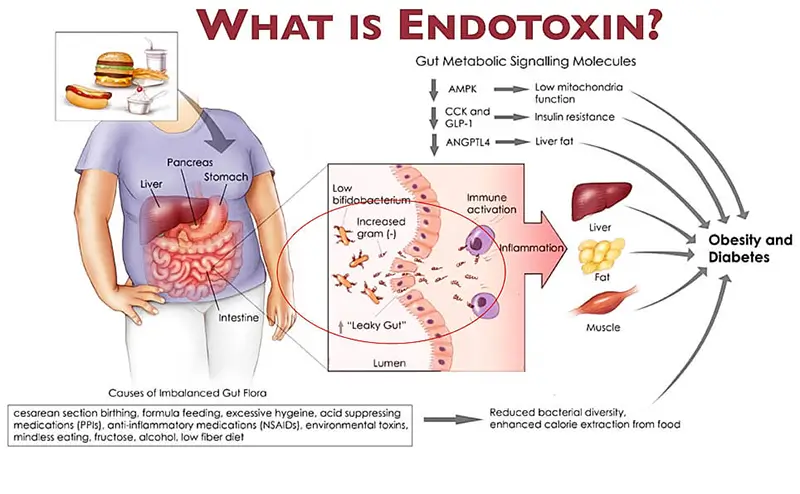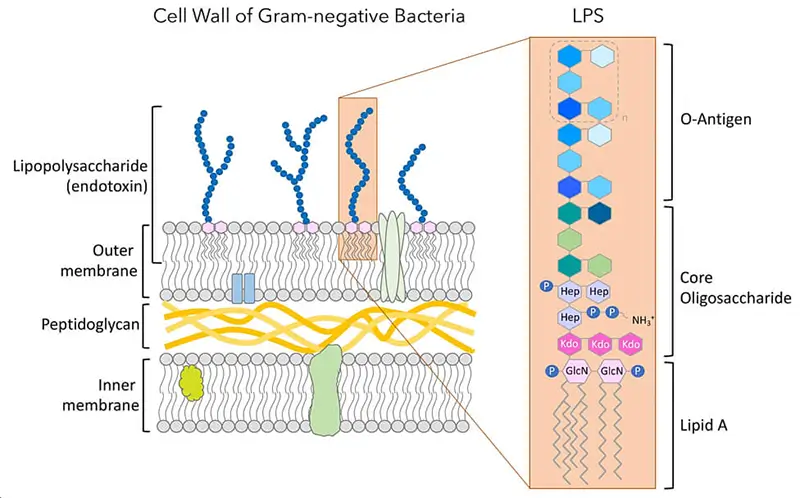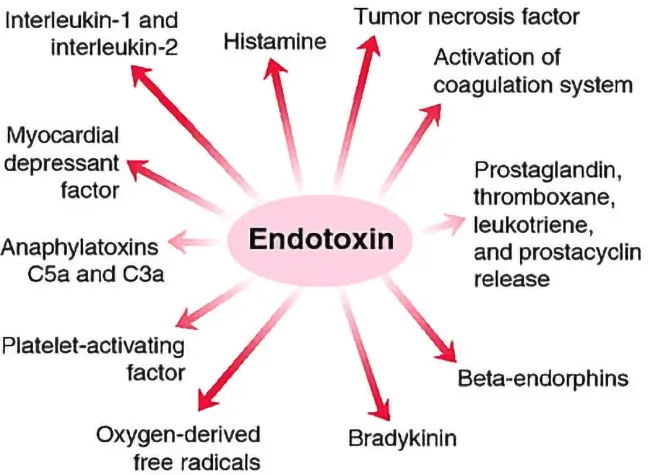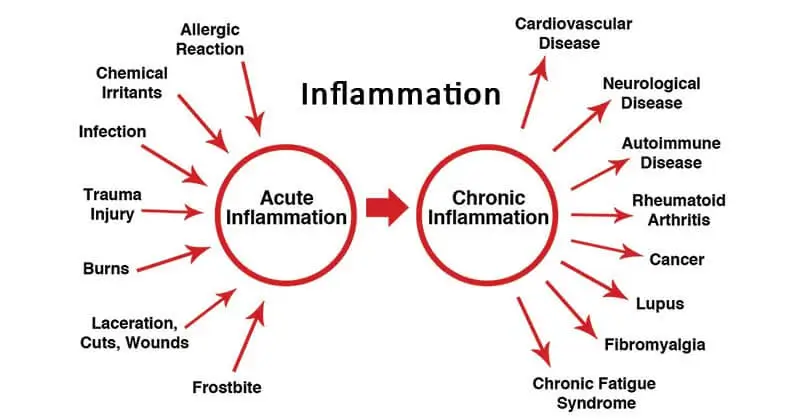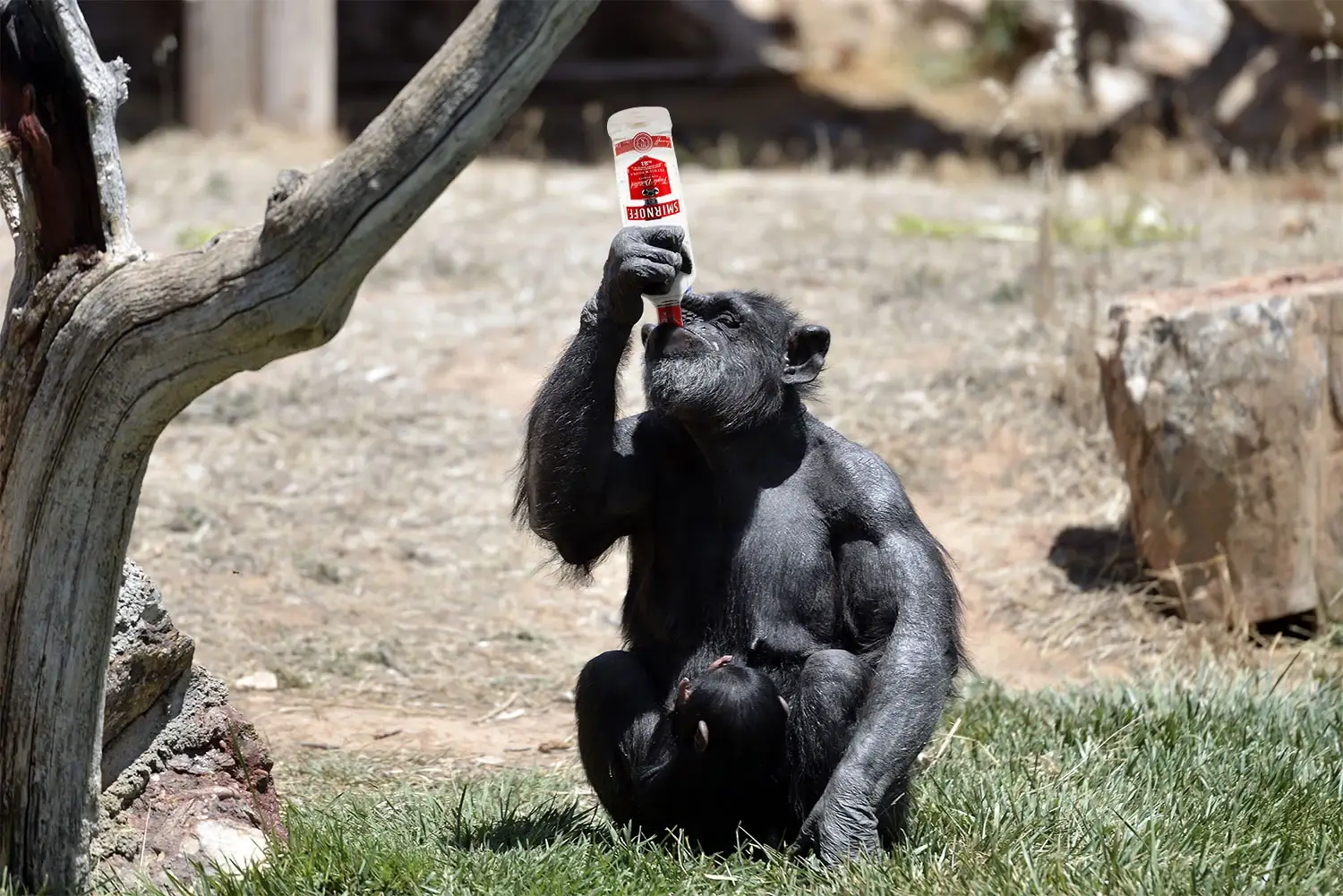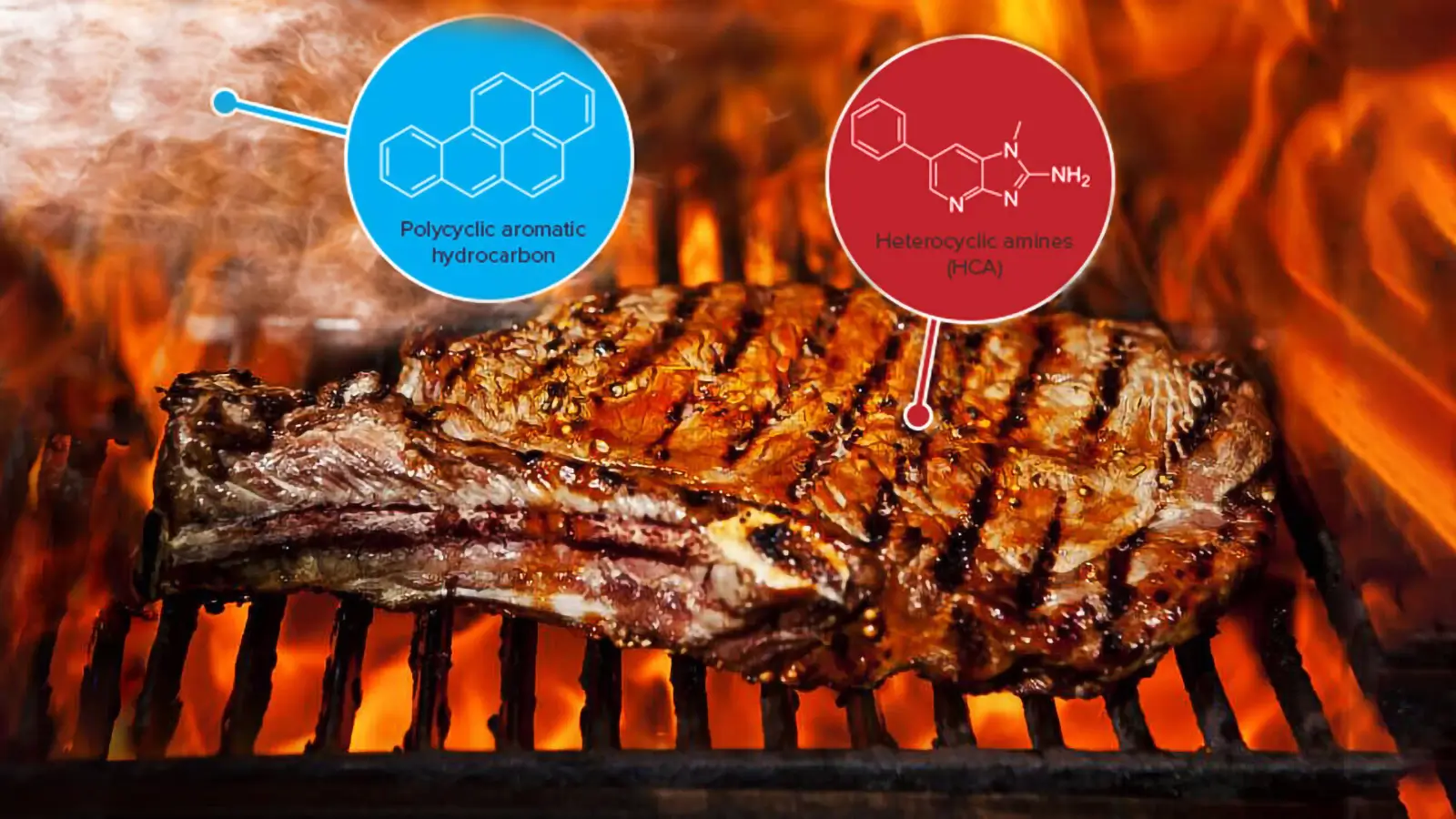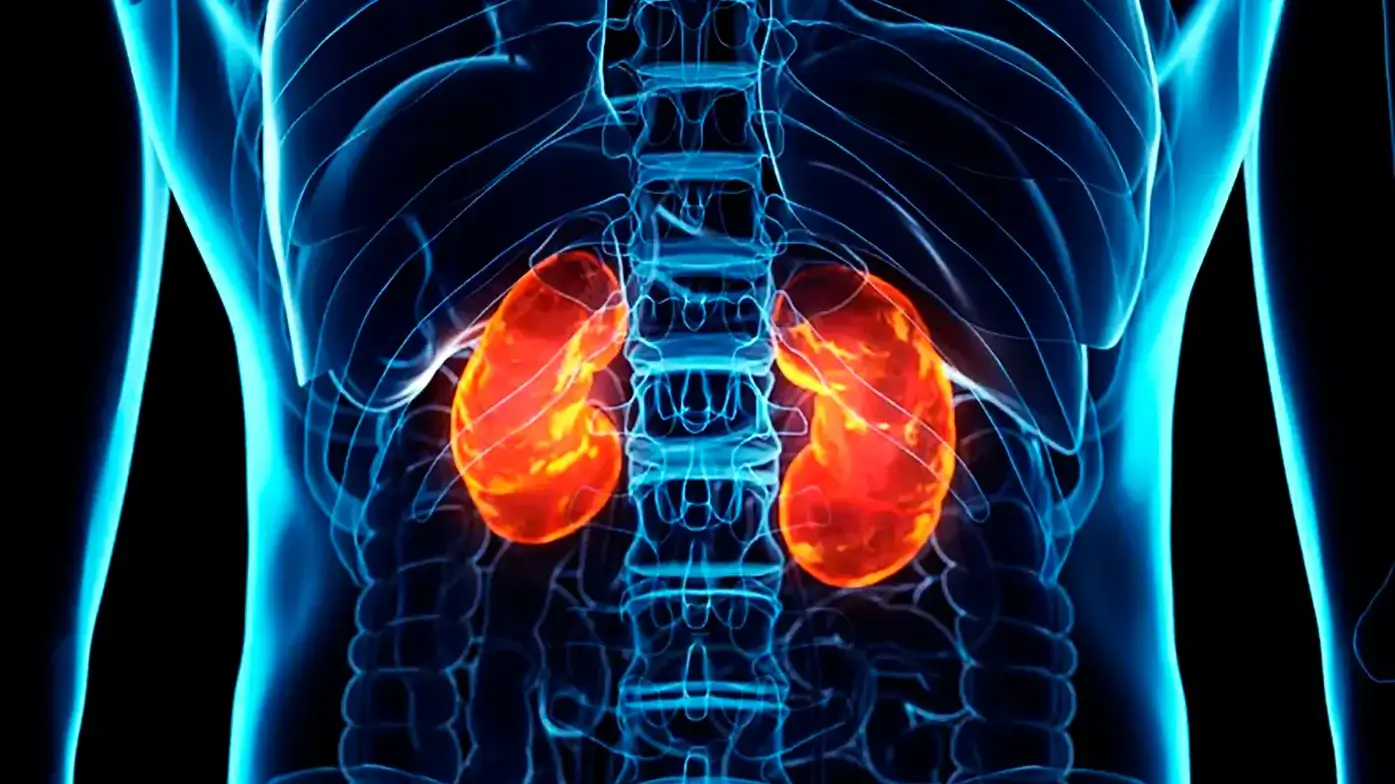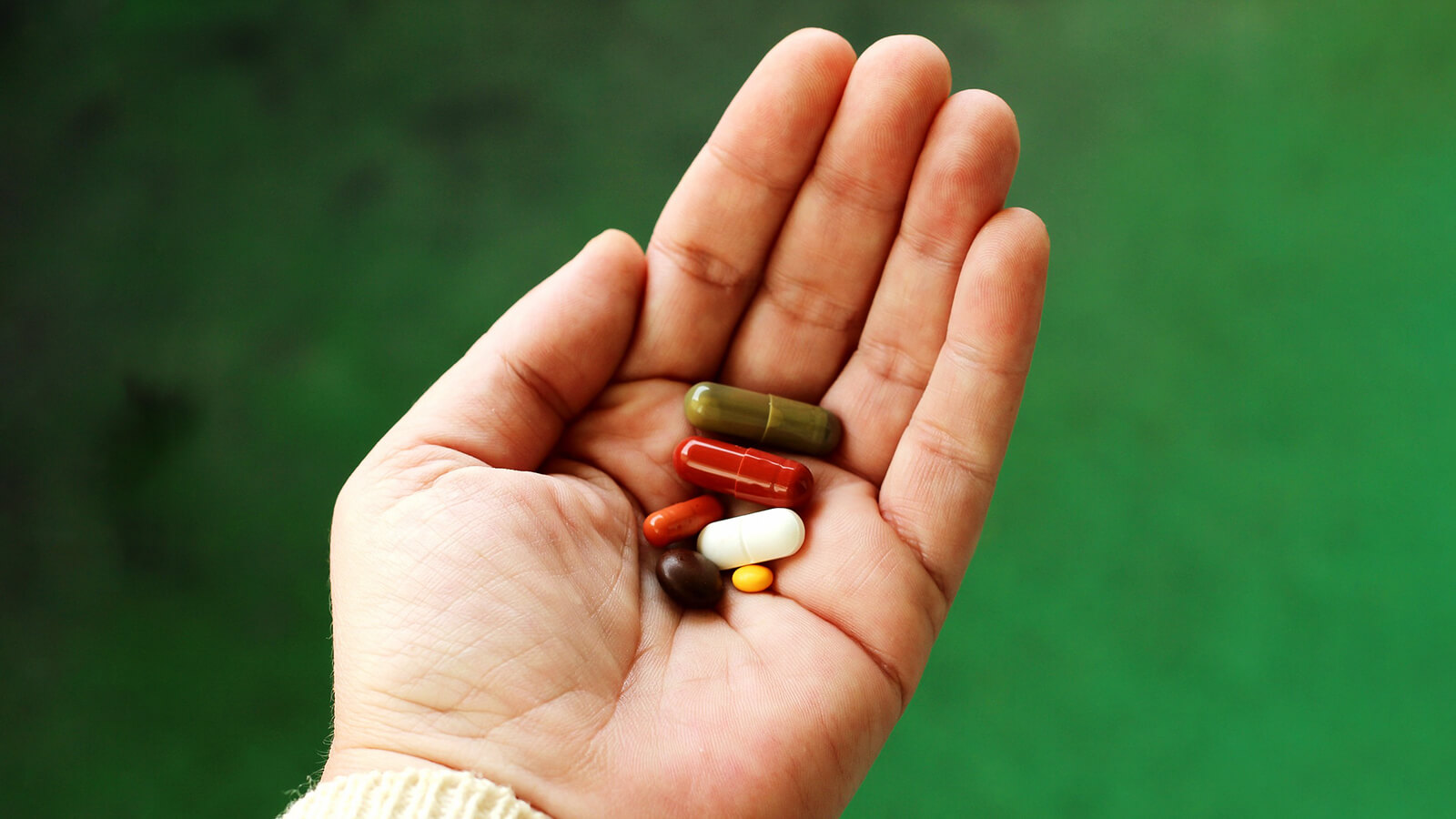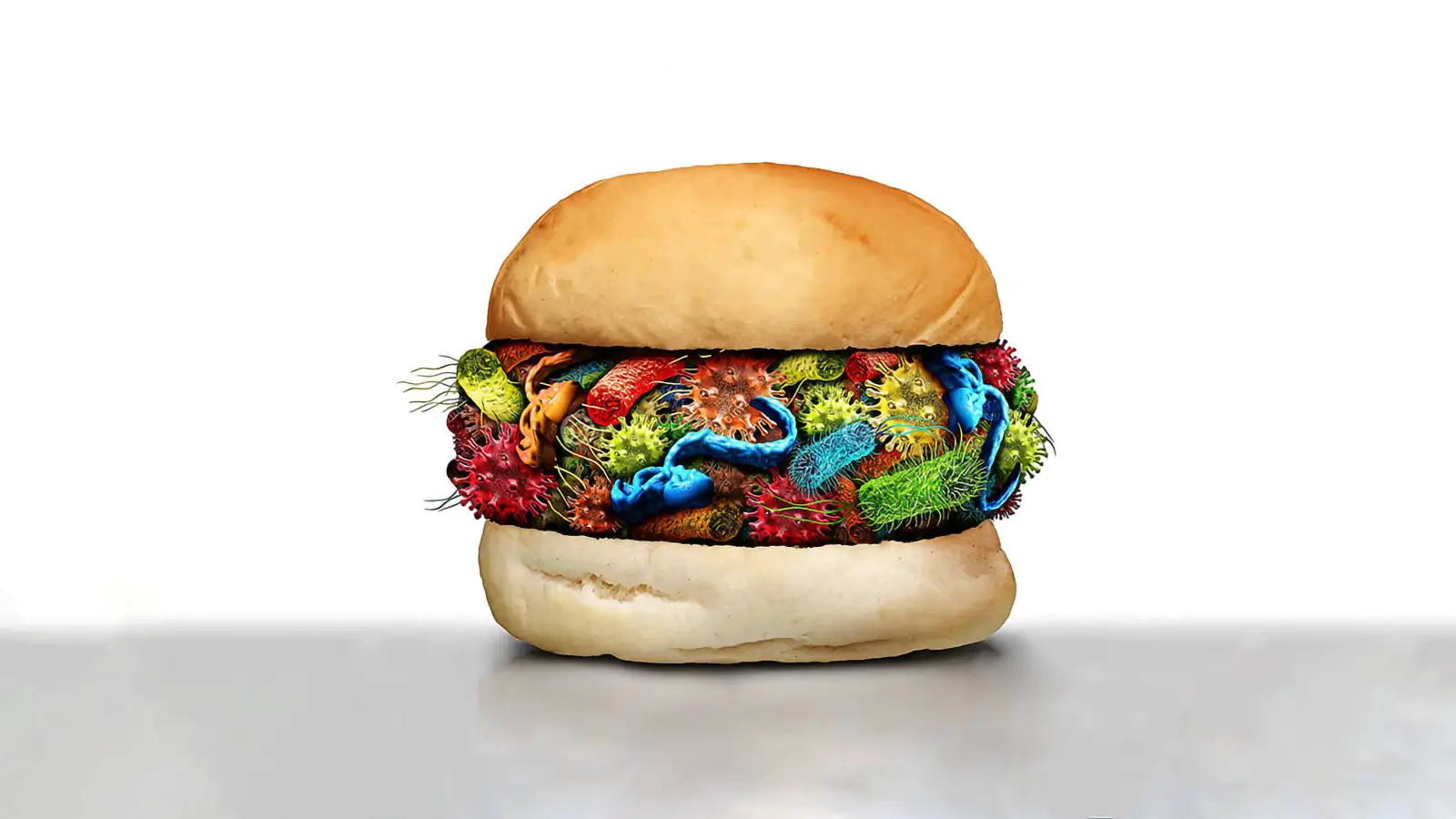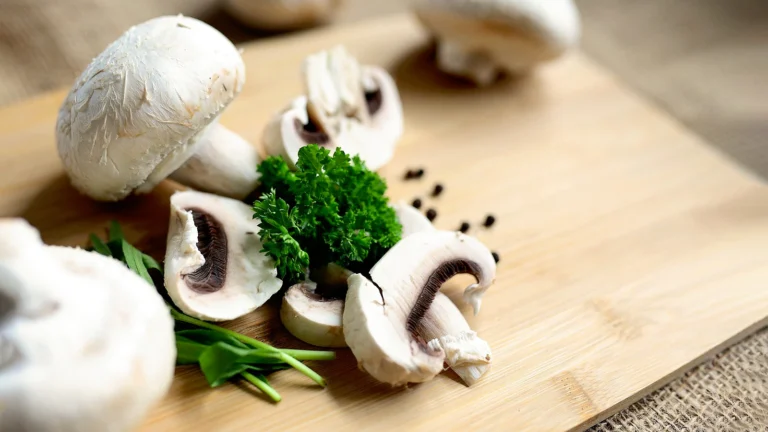Cooked meat bacteria endotoxemia- Inflammation and diet
Are humans omnivores in a true anatomical sense? There is a fundamental difference in the way the digestive tract works in plant vs meat-eating species.
Milos Pokimica
Written By: Milos Pokimica
Medically Reviewed by: Dr. Xiùying Wáng, M.D.
Updated June 9, 2023The emerging role of chronic inflammation in modern society’s major chronic diseases has sparked research into the impact of nutrition and dietary patterns on inflammatory status. The majority of human studies have linked dietary intake to systemic inflammation markers such as high-sensitivity C-reactive protein (HS-CRP), interleukin-6 (IL-6), and tumor necrosis factor-alpha (TNF-).
Significant dietary influences have been established for glycemic index (GI) and load (GL), fiber, fatty acid composition, magnesium, carotenoids, and flavonoids. Whole food plant-based diet or even a traditional Mediterranean dietary pattern, which typically has a high ratio of monounsaturated (MUFA) to saturated (SFA) fats and ω-3 to ω-6 polyunsaturated fatty acid (PUFAs) and supplies an abundance of fruits, vegetables, legumes, and grains, has shown anti-inflammatory effects when compared with typical North American and Northern European dietary patterns in most observational and interventional studies. There is a wide range of factors that influence inflammation caused by diet but a whole food antioxidant-rich, nutrient-rich diet may become the diet of choice for diminishing chronic inflammation in clinical practice.
Prolonged low-grade inflammation is linked to increased oxidative stress and altered glucose and lipid metabolism in fat (adipose) cells, muscle, and the liver. As a result, research indicates that certain dietary components can influence these key inflammatory pathways.
One of the factors that creates inflammation spikes after animal product consumption is a process known as endotoxemia. `Diet-induced metabolic endotoxemia has been proposed as a major root cause of inflammation, and these pathways appear to be detrimental to healthy aging.
We as humans, unlike carnivores species, have very low resistance filters meaning any live bacteria we eat will be creating inflammation, and diet can kill us if bacteria is dangerous. We cannot eat uncooked meat. Carnivorous animals have extremely corrosive bile acids that are able to kill any living microorganism and their digestive system is practically sterile. We as any other plant eater have mild bile acid and low resistance filters and have to cook meat and any other food item that has the potential to spread an infectious disease. For example, pasteurization is mandatory.
What people don’t understand is that even if we do cook meat we do not magically dematerialize all of the bacteria that were present in there. We only kill them by heat but they are still in there. Microorganisms are still in the meat just dead. They will not pose any risk of infection anymore.
But that does not mean that they don’t pose a risk anymore.
Even dead non-probiotic bacteria do count as toxins.
Some of the world’s most toxic substances are these dead meat bacteria endotoxins.
These substances known as endotoxins (Greek éndon within; cognate with Old Irish ind-) are thermally (250C) and chemically stable and extremely toxic. Endotoxin is a complex lipopolysaccharide (LPS) found in the outer cell membrane of gram-negative bacteria (E.coli, Salmonella typhi, Shigella).
Bacteria shed endotoxins in large amounts upon cell death creating an endotoxemia state in the body. Meaning, the bacteria can be dead or cooked for a long time, but their endotoxins are still there. Endotoxins are chemically very stable and can withstand our body’s best attempts at acid and enzyme degradation. One of the leading causes of hundreds of studies that display enlarged inflammation from animal foods, but not from most plant foods, maybe is a consequence of a toxic load of dead bacteria endotoxins in animal products. These bacteria shed endotoxins after death and then when we eat them they are absorbed into our system, leading to the endotoxemia inflammation we see after egg, meat, and dairy consumption, as well.
This would cause damage to our internal organs and the entire body and will increase the chances of chronic diseases (Ghosh et al., 1993).
If we already have an autoimmune disease such as atherosclerosis, for example, this will just agitate our immune system even worse and would create even more of an immune response (Stoll et al., 2004).
Here is one study that discovered a link between endotoxin exposure and diabetes type 2 (Harte et al., 2012).
What a low level of chronic endotoxemia inflammation does is that it causes damage like any other inflammation just in a prolonged period. What that translates to is faster and more noticeable DNA damage, a higher mortality rate from chronic diseases, and decreased longevity.
In contrast, plant foods do not show this trait, and actual consumption is correlated with the anti-inflammatory reaction after a meal because of the antioxidants and other anti-inflammatory phytochemicals. It would be interesting to see how much inflammation meat consumption causes in carnivorous species. So far I was unable to find research that looks into dead meat bacteria endotoxemia exposure in carnivorous species. This could be potentially interesting because if meat causes no inflammation in carnivorous animals, we might look at a way how to lower the same inflammation in our own bodies.
Consumption of meat, therefore, is associated with an increase in inflammation even if we disregard the risk of live infectious bacteria. This mechanism is natural and normal, and all of the carnivorous species had it to some extent but are more adept at coping with it.
A fresh hamburger contains approximately a hundred million bacteria per quarter pounder. Eating meals high in bacterial endotoxins could develop mild but systemic inflammatory episodes that predispose subjects to the development of chronic diseases.
The animal fat that comes in the same package may play a role in the pathogenesis of this after-meal inflammation. Endotoxins hold a powerful attraction for saturated fat, so they stick to it and then get absorbed through the gut wall and into the bloodstream (Erridge, 2011).
Would this happen if we eat food that is high in saturated fat from plant origin? It would, but the difference is that there are no high levels of these toxins in plant-based foods. For example, cocoa has a high fat content. It is one of the plants that has energy stored in a form of saturated fat, the same fat that is found in the animal kingdom. But cocoa also has a large number of antioxidants and in studies always decreases the level of C-reactive protein in subjects (a marker for inflammation) (Erridge et al., 2007), (Herieka et al., 2014).
The high antioxidant content of cocoa prevails and is able to neutralize the pro-inflammatory effects of endotoxins that are not present in the plants in high numbers, to begin with (Gu et al., 2014).
The problem with meat is a high concentration of bacteria. This means that eating a standard Western diet rich in animal protein and refined sugar and fat will require a much higher level of antioxidants to negate the bad pro-inflammatory effects.
The question will be where can we use these findings and can we diminish the bed proinflammatory effects of high animal protein meals with antioxidant-rich food. In other words, can we still eat meat but also add some high-antioxidant vegetables or fruits to the same meal to avoid the risk (Burton-Freeman, 2010).
There was a large number of studies done on a topic and the conclusion is yes, we can, but only to some extent. Avoidance of toxin exposure is our primary goal. If you really have to eat animal products then at least incorporate an adequate amount of anti-inflammatory food sources and calculate your optimal ORAC (Oxygen radical absorbance capacity) intake. You can find ORAC values here (ORAC Values). This would not completely negate the toxicity of dead meat bacteria endotoxemia exposure. These toxins are very potent and hard to detoxify. There are genetically susceptible individuals that have a harder time detoxifying these compounds. Antioxidant-rich food will lower the risk to a relevant degree and my advice is to optimize the antioxidant intake.
The best course of action would be to have a whole food plant-based diet that has an optimal level of ORAC units and a wide range of proinflammatory food sources with an adequate level of all essential micronutrients.
This is what the British Journal of Nutrition has to say about it.
“Postprandial (fed) state is a pro-oxidant state. The postprandial period is a time of active oxidative metabolism and formation of ROS (free radicals). There is increasing evidence that the postprandial state is an important contributing factor to chronic disease. Two main questions are posed: first, what is the role of plant foods, specifically fruits rich in complex and simple phenolic compounds in postprandial metabolic management; and second, does the evidence support consuming these fruits with meals as a practical strategy to preserve health and lower risk for disease? The collected data suggest that consuming phenolic-rich fruits increases the antioxidant capacity of the blood, and when they are consumed with high fat and carbohydrate ‘pro-oxidant and pro-inflammatory’ meals, they may counterbalance their negative effects. Given the content and availability of fat and carbohydrate in the Western diet, regular consumption of phenolic-rich foods, particularly in conjunction with meals, appears to be a prudent strategy to maintain oxidative balance and health.“
References:
- Ghosh, S., Latimer, R. D., Gray, B. M., Harwood, R. J., & Oduro, A. (1993). Endotoxin-induced organ injury. Critical care medicine, 21(2 Suppl), S19–S24. https://doi.org/10.1097/00003246-199302001-00005
- Stoll, L. L., Denning, G. M., & Weintraub, N. L. (2004). Potential role of endotoxin as a proinflammatory mediator of atherosclerosis. Arteriosclerosis, thrombosis, and vascular biology, 24(12), 2227–2236. https://doi.org/10.1161/01.ATV.0000147534.69062.dc
- Harte, A. L., Varma, M. C., Tripathi, G., McGee, K. C., Al-Daghri, N. M., Al-Attas, O. S., Sabico, S., O’Hare, J. P., Ceriello, A., Saravanan, P., Kumar, S., & McTernan, P. G. (2012). High fat intake leads to acute postprandial exposure to circulating endotoxin in type 2 diabetic subjects. Diabetes care, 35(2), 375–382. https://doi.org/10.2337/dc11-1593
- Erridge C. (2011). The capacity of foodstuffs to induce innate immune activation of human monocytes in vitro is dependent on food content of stimulants of Toll-like receptors 2 and 4. The British journal of nutrition, 105(1), 15–23. https://doi.org/10.1017/S0007114510003004
- Erridge, C., Attina, T., Spickett, C. M., & Webb, D. J. (2007). A high-fat meal induces low-grade endotoxemia: evidence of a novel mechanism of postprandial inflammation. The American journal of clinical nutrition, 86(5), 1286–1292. https://doi.org/10.1093/ajcn/86.5.1286
- Herieka, M., & Erridge, C. (2014). High-fat meal induced postprandial inflammation. Molecular nutrition & food research, 58(1), 136–146. https://doi.org/10.1002/mnfr.201300104
- Gu, Y., Yu, S., Park, J. Y., Harvatine, K., & Lambert, J. D. (2014). Dietary cocoa reduces metabolic endotoxemia and adipose tissue inflammation in high-fat fed mice. The Journal of nutritional biochemistry, 25(4), 439–445. https://doi.org/10.1016/j.jnutbio.2013.12.004
- Burton-Freeman B. (2010). Postprandial metabolic events and fruit-derived phenolics: a review of the science. The British journal of nutrition, 104 Suppl 3, S1–S14. https://doi.org/10.1017/S0007114510003909
Related Posts
Do you have any questions about nutrition and health?
I would love to hear from you and answer them in my next post. I appreciate your input and opinion and I look forward to hearing from you soon. I also invite you to follow us on Facebook, Instagram, and Pinterest for more diet, nutrition, and health content. You can leave a comment there and connect with other health enthusiasts, share your tips and experiences, and get support and encouragement from our team and community.
I hope that this post was informative and enjoyable for you and that you are prepared to apply the insights you learned. If you found this post helpful, please share it with your friends and family who might also benefit from it. You never know who might need some guidance and support on their health journey.
– You Might Also Like –

Learn About Nutrition
Milos Pokimica is a doctor of natural medicine, clinical nutritionist, medical health and nutrition writer, and nutritional science advisor. Author of the book series Go Vegan? Review of Science, he also operates the natural health website GoVeganWay.com
Medical Disclaimer
GoVeganWay.com brings you reviews of the latest nutrition and health-related research. The information provided represents the personal opinion of the author and is not intended nor implied to be a substitute for professional medical advice, diagnosis, or treatment. The information provided is for informational purposes only and is not intended to serve as a substitute for the consultation, diagnosis, and/or medical treatment of a qualified physician or healthcare provider.NEVER DISREGARD PROFESSIONAL MEDICAL ADVICE OR DELAY SEEKING MEDICAL TREATMENT BECAUSE OF SOMETHING YOU HAVE READ ON OR ACCESSED THROUGH GoVeganWay.com
NEVER APPLY ANY LIFESTYLE CHANGES OR ANY CHANGES AT ALL AS A CONSEQUENCE OF SOMETHING YOU HAVE READ IN GoVeganWay.com BEFORE CONSULTING LICENCED MEDICAL PRACTITIONER.
In the event of a medical emergency, call a doctor or 911 immediately. GoVeganWay.com does not recommend or endorse any specific groups, organizations, tests, physicians, products, procedures, opinions, or other information that may be mentioned inside.
Editor Picks –
Milos Pokimica is a health and nutrition writer and nutritional science advisor. Author of the book series Go Vegan? Review of Science, he also operates the natural health website GoVeganWay.com
Latest Articles –
Top Health News — ScienceDaily
- The overlooked nutrition risk of Ozempic and Wegovyon February 4, 2026
Popular weight-loss drugs like Ozempic and Wegovy can dramatically curb appetite, but experts warn many users are flying blind when it comes to nutrition. New research suggests people taking these medications may not be getting enough guidance on protein, vitamins, and overall diet quality, increasing the risk of muscle loss and nutrient deficiencies.
- A 25-year study found an unexpected link between cheese and dementiaon February 4, 2026
A massive Swedish study tracking nearly 28,000 people for 25 years found an unexpected link between full-fat dairy and brain health. Among adults without a genetic risk for Alzheimer’s, eating more full-fat cheese was associated with a noticeably lower risk of developing the disease, while higher cream intake was tied to reduced dementia risk overall. The findings challenge decades of low-fat dietary advice but come with important caveats.
- MIT’s new brain tool could finally explain consciousnesson February 4, 2026
Scientists still don’t know how the brain turns physical activity into thoughts, feelings, and awareness—but a powerful new tool may help crack the mystery. Researchers at MIT are exploring transcranial focused ultrasound, a noninvasive technology that can precisely stimulate deep regions of the brain that were previously off-limits. In a new “roadmap” paper, they explain how this method could finally let scientists test cause-and-effect in consciousness research, not just observe […]
- Why heart disease risk in type 2 diabetes looks different for men and womenon February 4, 2026
Scientists are digging into why heart disease risk in type 2 diabetes differs between men and women—and sex hormones may be part of the story. In a large Johns Hopkins study, men with higher testosterone had lower heart disease risk, while rising estradiol levels were linked to higher risk. These hormone effects were not seen in women. The results point toward more personalized approaches to heart disease prevention in diabetes.
- Sound machines might be making your sleep worseon February 4, 2026
Sound machines may not be the sleep saviors many believe. Researchers found that pink noise significantly reduced REM sleep, while simple earplugs did a better job protecting deep, restorative sleep from traffic noise. When pink noise was combined with outside noise, sleep quality dropped even further. The results suggest that popular “sleep sounds” could be doing more harm than good—particularly for kids.
- This unexpected plant discovery could change how drugs are madeon February 3, 2026
Plants make chemical weapons to protect themselves, and many of these compounds have become vital to human medicine. Researchers found that one powerful plant chemical is produced using a gene that looks surprisingly bacterial. This suggests plants reuse microbial tools to invent new chemistry. The insight could help scientists discover new drugs and produce them more sustainably.
- A hidden cellular process may drive aging and diseaseon February 3, 2026
As we age, our cells don’t just wear down—they reorganize. Researchers found that cells actively remodel a key structure called the endoplasmic reticulum, reducing protein-producing regions while preserving fat-related ones. This process, driven by ER-phagy, is tied to lifespan and healthy aging. Because these changes happen early, they could help trigger later disease—or offer a chance to stop it.
PubMed, #vegan-diet –
- Diet type and the oral microbiomeon February 2, 2026
CONCLUSION: The diet-oral microbiome-systemic inflammation axis is bidirectional and clinically relevant. Understanding both direct ecological regulation and indirect metabolic effects is essential to support precision nutrition strategies aimed at maintaining oral microbial balance and systemic inflammatory risk mitigation.
- Consensus document on healthy lifestyleson January 22, 2026
Proteins are a group of macronutrients that are vital to our lives, as they perform various functions, including structural, defensive and catalytic. An intake of 1.0-1.2 g/kg/body weight per day would be sufficient to meet our needs. Carbohydrate requirements constitute 50 % of the total caloric value and should be obtained mainly in the form of complex carbohydrates. In addition, a daily intake of both soluble and insoluble fiber is necessary. Regular consumption of extra virgin olive oil […]
- Vitamin B12 and D status in long-term vegetarians: Impact of diet duration and subtypes in Beijing, Chinaon January 21, 2026
CONCLUSIONS: This study reveals a dual challenge among Beijing long-term vegetarians: vitamin B12 deficiency was strongly associated with the degree of exclusion of animal products from the diet (veganism), while vitamin D deficiency was highly prevalent and worsened with longer diet duration. The near-universal vitamin D deficiency observed in this study suggests that, in the Beijing context, the risk may extend beyond dietary choice, potentially reflecting regional environmental factors;…
- Nutritional evaluation of duty meals provided to riot police forces in Germanyon January 13, 2026
Background: The primary role of the German riot police is maintaining internal security. Due to challenging working conditions, riot police forces face an elevated risk of various diseases. During duty, forces are provided with meals. A balanced diet can reduce the risk of some of these diseases and contribute to health-promoting working conditions. Aim: First evaluation of the nutritional quality of duty meals in Germany based on German Nutrition Society recommendations (DGE). Methods: In…
- Iodineon January 1, 2006
Iodine is an essential trace nutrient for all infants that is a normal component of breastmilk. Infant requirements are estimated to be 15 mcg/kg daily in full-term infants and 30 mcg/kg daily in preterm infants.[1] Breastmilk iodine concentration correlates well with maternal urinary iodine concentration and may be a useful index of iodine sufficiency in infants under 2 years of age, but there is no clear agreement on a value that indicates iodine sufficiency, and may not correlate with […]
Random Posts –
Featured Posts –
Latest from PubMed, #plant-based diet –
- From paddy soil to dining table: biological biofortification of rice with zincby Lei Huang on February 4, 2026
One-third of paddy soils are globally deficient in zinc (Zn) and 40% of Zn loss in the procession from brown rice to polished rice, which results in the global issue of hidden hunger, e.g., the micronutrient deficiencies in the rice-based population of developing countries. In the recent decades, biofortification of cereal food crops with Zn has emerged as a promising solution. Herein, we comprehensively reviewed the entire process of Zn in paddy soil to human diet, including the regulatory…
- Molecular Characterization of Tobacco Necrosis Virus A Variants Identified in Sugarbeet Rootsby Alyssa Flobinus on February 3, 2026
Sugarbeet provides an important source of sucrose; a stable, environmentally safe, and low-cost staple in the human diet. Viral diseases arising in sugarbeet ultimately impact sugar content, which translates to financial losses for growers. To manage diseases and prevent such losses from occurring, it is essential to characterize viruses responsible for disease. Recently, our laboratory identified a tobacco necrosis virus A variant named Beta vulgaris alphanecrovirus 1 (BvANV-1) in sugarbeet…
- Nutrition in early life interacts with genetic risk to influence preadult behaviour in the Raine Studyby Lars Meinertz Byg on February 3, 2026
CONCLUSIONS: Nutrition in early life and psychiatric genetic risk may interact to determine lasting child behaviour. Contrary to our hypothesis, we find dietary benefits in individuals with lower ADHD PGS, necessitating replication. We also highlight the possibility of including genetics in early nutrition intervention trials for causal inference.
- Effect of the gut microbiota on insect reproduction: mechanisms and biotechnological prospectsby Dilawar Abbas on February 2, 2026
The insect gut microbiota functions as a multifunctional symbiotic system that plays a central role in host reproduction. Through the production of bioactive metabolites, gut microbes interact with host hormonal pathways, immune signaling, and molecular regulatory networks, thereby shaping reproductive physiology and fitness. This review summarizes recent advances in understanding how gut microbiota regulate insect reproduction. Accumulating evidence demonstrates that microbial metabolites…
- Rationale and design of a parallel randomised trial of a plant-based intensive lifestyle intervention for diabetes remission: The REmission of diabetes using a PlAnt-based weight loss InteRvention…by Brighid McKay on February 2, 2026
CONCLUSIONS: This trial will provide high-quality clinical evidence on the use of plant-based ILIs to address the epidemics of obesity and diabetes to inform public health policies and programs in Canada and beyond.
- Diet type and the oral microbiomeby Daniel Betancur on February 2, 2026
CONCLUSION: The diet-oral microbiome-systemic inflammation axis is bidirectional and clinically relevant. Understanding both direct ecological regulation and indirect metabolic effects is essential to support precision nutrition strategies aimed at maintaining oral microbial balance and systemic inflammatory risk mitigation.
